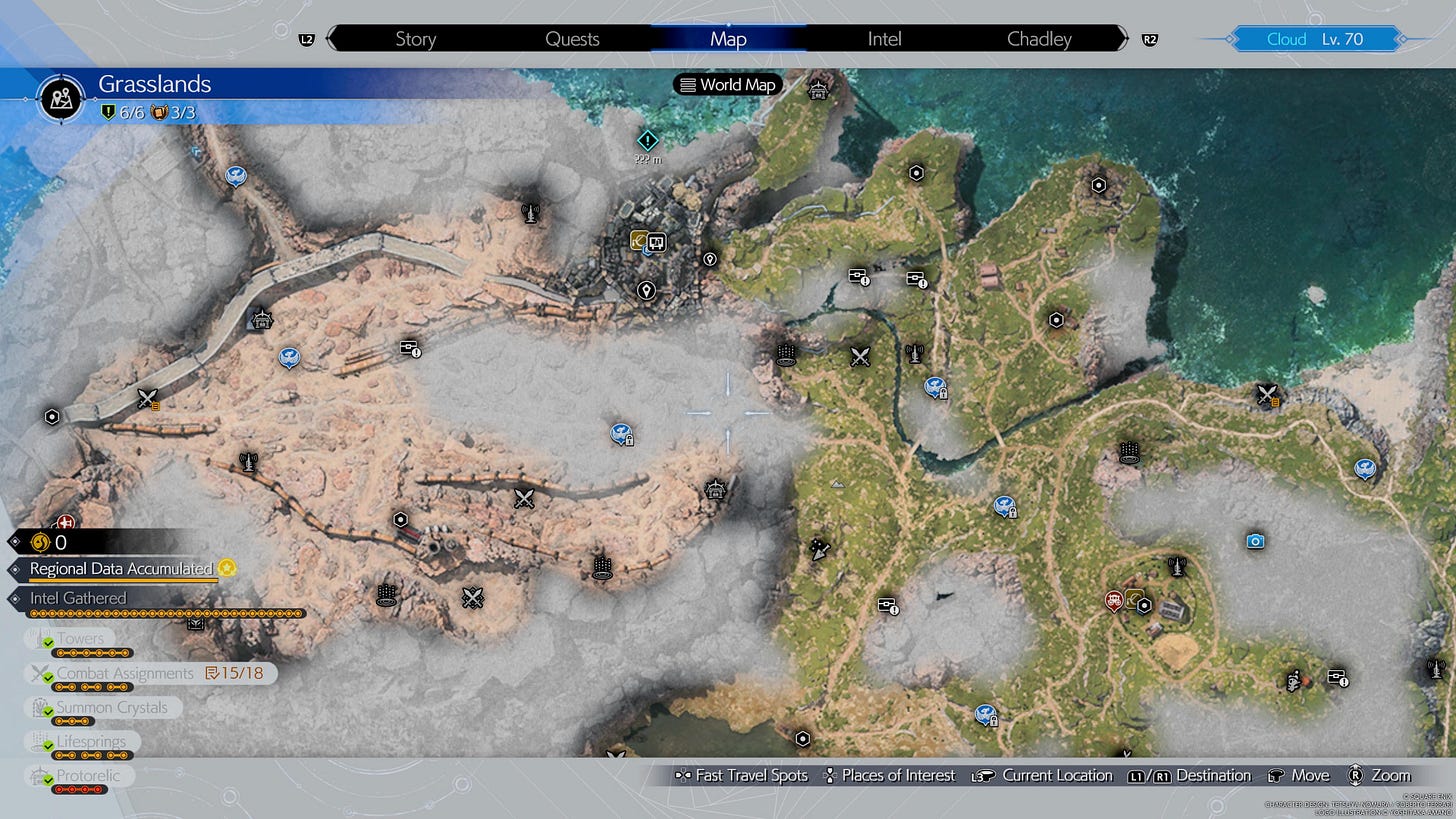80+ hours later… Did Final Fantasy 7 Rebirth waste time?
A title with the biggest gaming cliffhanger of the decade has me reflecting on what 'well spent' gaming time should look like.
After a mammoth 80-hours over three weeks, I have finally cleared Final Fantasy 7 Rebirth. But looking back I can’t help but wonder how much of it was wasted time?

An article from Game Files (another really good SubStack) got me thinking about this. The editor Stephen Totilo posits that Rise Of The Ronin — Sony’s next big release — does players a favour by respecting their time.
As Totilo outlines, Rise of the Ronin — a new action game released this week set in Feudal Japan — automatically skips cutscenes you’ve already seen, implements an early and effective fast travel system and removes inventory frustration by automatically clearing out loot.
Final Fantasy 7 Rebirth has a lot of these systems too (including an excellent fast travel system) that helps you grind out tasks with ease. Yet, one of the main criticisms of the game is its bloat.
For those unfami…
Keep reading with a 7-day free trial
Subscribe to Infinite Lives to keep reading this post and get 7 days of free access to the full post archives.



